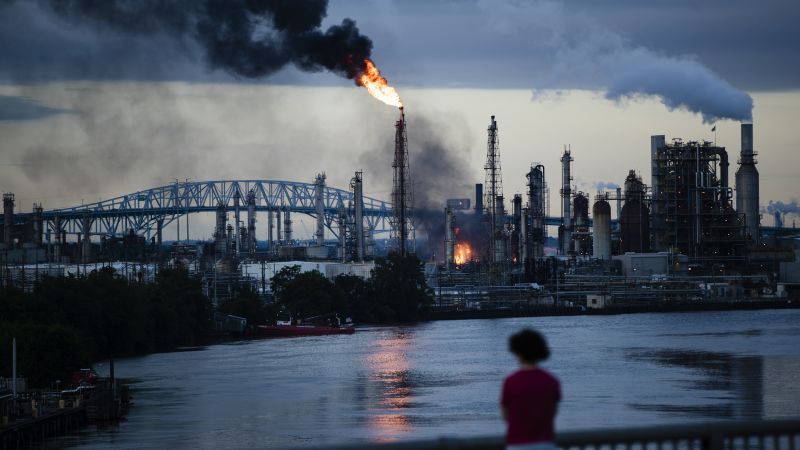In June 2019, a massive explosion broke out at a former oil refinery in Philadelphia, prompting an emergency response as workers rushed to the scene of the fire. The refinery, once the largest on the East Coast, had a history of incidents and protests due to safety concerns. Following the explosions, the company filed for bankruptcy and shut down, leaving hundreds of employees without jobs. The property was later auctioned off to a real estate company, Hilco Redevelopment Partners, who now owns the land.
The land once occupied by the refinery now sits empty, undergoing clean-up efforts and awaiting redevelopment plans. Local activists and residents are advocating for sustainable and community-centered development of the site to address past pollution issues and the loss of jobs. The transformation of the land represents a significant opportunity for the future of Philadelphia, but the process is complicated by environmental concerns and uncertainties surrounding the timeline for improvements.
Residents living near the refinery had long suffered from health issues attributed to pollution coming from the facility. The refinery was cited as a significant source of air pollution in the city, leading to high rates of asthma, cancer, and respiratory illnesses in the surrounding communities. Grassroots groups like Philly Thrive organized protests and advocacy efforts to push for the closure of the refinery and demand accountability for the health impacts on residents.
Following the closure of the refinery, efforts to redevelop the land are underway, with plans for a state-of-the-art campus that includes warehouses and laboratories. However, concerns remain about the scale and complexity of the cleanup process, potential job opportunities for local residents, and transparency in the redevelopment plans. While Hilco claims the project will create jobs and benefit the community, some remain skeptical about the long-term impact on the surrounding neighborhoods.
Despite the challenges and uncertainties, the closure of the refinery represents a significant shift for the community, with many residents hopeful for a more sustainable and beneficial future for the land. Philly Thrive continues to advocate for a seat at the table in the redevelopment process to ensure that the needs and concerns of the community are prioritized. The transformation of the former refinery site serves as a symbol of resilience and hope for a healthier and more prosperous future for the residents of Philadelphia.


